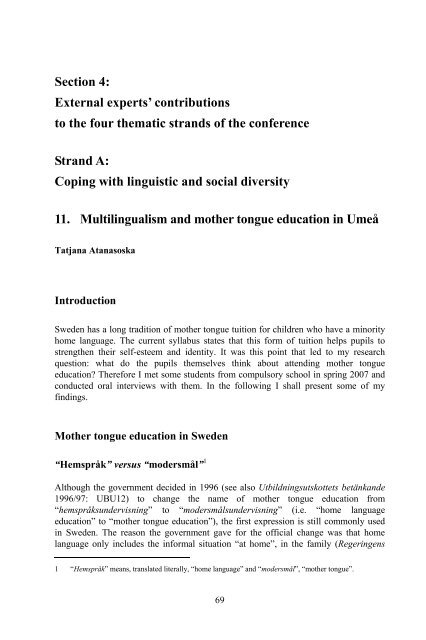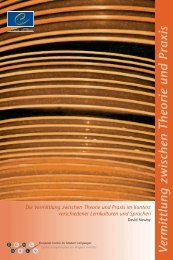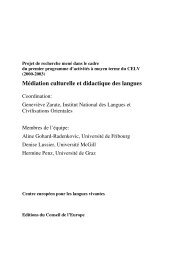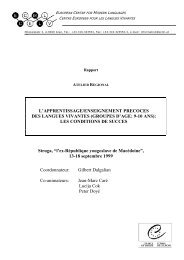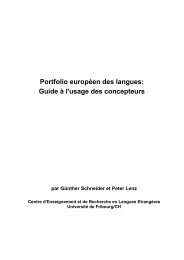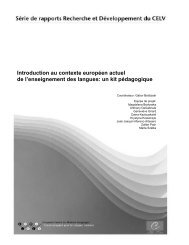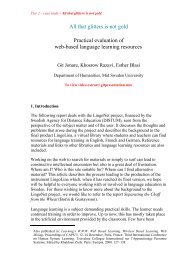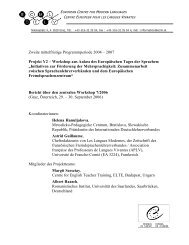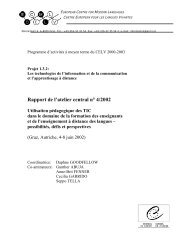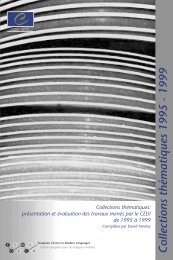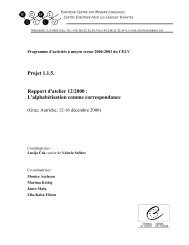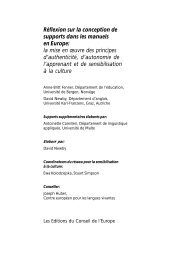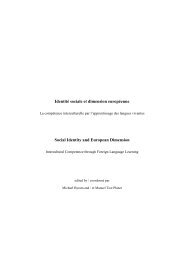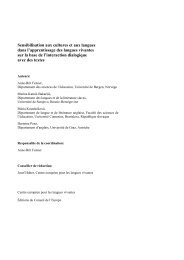cohesion - European Centre for Modern Languages
cohesion - European Centre for Modern Languages
cohesion - European Centre for Modern Languages
Create successful ePaper yourself
Turn your PDF publications into a flip-book with our unique Google optimized e-Paper software.
Section 4:<br />
External experts’ contributions<br />
to the four thematic strands of the conference<br />
Strand A:<br />
Coping with linguistic and social diversity<br />
11. Multilingualism and mother tongue education in Umeå<br />
Tatjana Atanasoska<br />
Introduction<br />
Sweden has a long tradition of mother tongue tuition <strong>for</strong> children who have a minority<br />
home language. The current syllabus states that this <strong>for</strong>m of tuition helps pupils to<br />
strengthen their self-esteem and identity. It was this point that led to my research<br />
question: what do the pupils themselves think about attending mother tongue<br />
education? There<strong>for</strong>e I met some students from compulsory school in spring 2007 and<br />
conducted oral interviews with them. In the following I shall present some of my<br />
findings.<br />
Mother tongue education in Sweden<br />
“Hemspråk” versus “modersmål” 1<br />
Although the government decided in 1996 (see also Utbildningsutskottets betänkande<br />
1996/97: UBU12) to change the name of mother tongue education from<br />
“hemspråksundervisning” to “modersmålsundervisning” (i.e. “home language<br />
education” to “mother tongue education”), the first expression is still commonly used<br />
in Sweden. The reason the government gave <strong>for</strong> the official change was that home<br />
language only includes the in<strong>for</strong>mal situation “at home”, in the family (Regeringens<br />
1 “Hemspråk” means, translated literally, “home language” and “modersmål”, “mother tongue”.<br />
69


